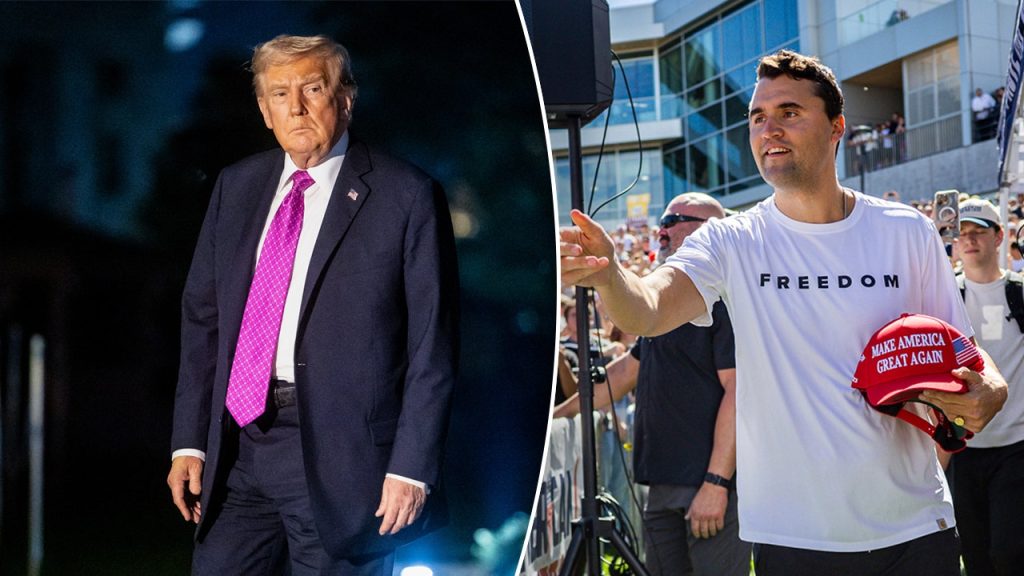The Political Aftermath of Charlie Kirk’s Assassination: A Nation Divided
In the wake of the tragic assassination of Charlie Kirk, founder of Turning Point USA, America’s political divide has become more pronounced than ever. President Donald Trump has firmly rejected suggestions that right-wing extremism poses a significant problem, instead directing blame toward the political left. “The problem is on the left,” Trump told reporters, characterizing left-wing activists as “agitators” and “scum” who burn American flags. When questioned about potential investigations, he claimed that many left-wing individuals were “already under major investigation.” This partisan framing continued on “Fox & Friends,” where Trump described “radicals on the left” as “vicious and horrible,” citing their support for transgender rights and open borders as evidence of their extremism. This rhetoric stands in stark contrast to Utah’s Republican Governor Spencer Cox, who has called for lowering the political temperature and finding an “off-ramp” from the current surge in political violence.
The response to Kirk’s murder has revealed both commendable restraint and troubling extremism across the political spectrum. Democratic leaders, including former President Barack Obama, have rightfully condemned the assassination as unacceptable, regardless of their political disagreements with Kirk. However, some media outlets have stumbled in their coverage. Newsday was forced to apologize for publishing a cartoon showing an empty chair with blood behind it and Kirk’s catchphrase “Prove Me Wrong,” which the paper later admitted was “insensitive and offensive.” Meanwhile, Fox News reported that FBI Director Kash Patel had lost White House confidence after mishandling the announcement of a suspect in custody, who turned out to be the wrong person. Patel later acknowledged his announcement “could have been worded a little better,” while organizational tensions within the FBI surfaced when Missouri’s attorney general was appointed at the same rank as Patel’s deputy.
The search for explanations has led to irresponsible finger-pointing, with some conservative figures rushing to blame educational institutions. Kari Lake, who runs the U.S. Agency for Global Media, claimed at a vigil that the college the accused shooter briefly attended had “brainwashed” him, urging mothers not to send their children to these “indoctrination camps.” This accusation feels particularly stretched considering the suspect attended Utah State University as a pre-engineering major for just one semester four years before the shooting. Such baseless claims reflect a troubling pattern in American political discourse—when tragedy strikes, partisans on both sides rush to weaponize it against their opponents, regardless of facts or context.
This pattern of politicizing violence has a long and unfortunate history in American politics. After the Oklahoma City bombing, President Clinton suggested Rush Limbaugh bore some responsibility. The New York Times wrongly implicated Sarah Palin in the shooting of Congresswoman Gabby Giffords due to a political map featuring crosshairs, despite evidence the shooter never saw it. Similarly, when a gunman wounded Representative Steve Scalise at a Republican baseball practice, some conservatives emphasized that he was a Rachel Maddow viewer. In the case of Kirk’s alleged murderer, some have highlighted that he lived with a transgender individual transitioning from male to female. However, these attempts to find political meaning overlook a fundamental truth: anyone who plots political assassination is, by definition, mentally unbalanced. This recognition doesn’t diminish the seriousness of political rhetoric that demonizes opponents—including characterizations of President Trump as Hitler, which could indeed encourage further violence against him.
Perhaps most troubling in the aftermath of Kirk’s murder has been the broad-brush condemnation of entire political movements. When Elon Musk tweets that “the left is the party of murder,” he’s not just condemning the alleged shooter but implicitly accusing millions of Americans with liberal viewpoints of complicity in violence. Similarly, Governor Cox’s characterization of social media as a “cancer,” while arguably accurate in its assessment of platform toxicity, fails to acknowledge that we cannot simply eliminate these communication channels from modern life. By conflating the actions of a deranged individual with the beliefs of everyone who shares some aspect of their political orientation, we further entrench division and make reconciliation increasingly impossible.
The assassination of Charlie Kirk represents not just a tragedy for his family and supporters but a critical moment for American democracy. How we respond to this violence will shape our political discourse for years to come. We face a choice: we can use this moment to demonize our political opponents, treating them as existential enemies rather than fellow citizens with different views, or we can recognize our shared humanity and commitment to peaceful democratic processes. The increasing polarization of American politics—where disagreement is interpreted as moral failing and opponents are viewed as evil rather than mistaken—creates fertile ground for further violence. Breaking this cycle requires leadership that rejects the easy comfort of partisan blame and instead embraces the difficult work of fostering dialogue across political divides. Until we can disagree without demonizing, tragedies like the one that took Charlie Kirk’s life will remain an ever-present danger to our democratic experiment.


